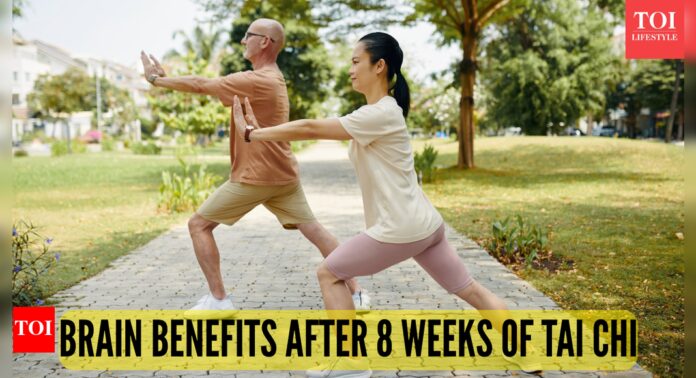The ancient practice of Tai Chi has been found to unlock remarkable changes in the brain after only eight weeks. The consistency of improvements in memory, focus, mental flexibility, and even the structure of the brain has been observed. Tai Chi is not just graceful; it is a science-backed way to sharpen the mind and nurture well-being. Let’s explore how this ancient practice is enhancing cognitive health across generations, supported by compelling findings from neuroscience and clinical research.
Tai Chi: Meditation in motion

Walk past any city park on a morning stroll, and you might see a group performing slow, flowing movements in unison. This is Tai Chi-an ancient Chinese practice that is sometimes described as “meditation in motion.” More recently, modern science has begun to uncover how its unique blend of gentle exercise and mindful attention reshapes the human brain from the inside out.What began centuries ago as a martial art has evolved into a powerful practice for balance, relaxation, and overall well-being.
The first eight weeks: What changes?

In fact, after only eight weeks, as published in the research in Frontiers, after regular practice, about three sessions per week, scientists have observed measurable changes in cognition and brain structure. In controlled studies, participants showed sharper attention, quicker information processing, and greater cognitive flexibility compared to groups doing conventional exercise like walking.Surprisingly, MRI scans even showed increased volume in key brain regions responsible for memory, decision-making, and focus, including the prefrontal cortex and temporal lobes. Such changes seem to appear so much earlier than researchers had first anticipated and thus make Tai Chi one of the few activities with extremely fast neurological benefits, as stated in research published by the National Institute of Health.
Improved function and memory

Executive function is the brain’s “mental manager,” handling such things as multitasking, decision-making, planning, and resisting distractions. Tai Chi’s unique combination of physical movement, memorization of forms, and steady breathing has been shown to improve this “mental manager” function. Studies comparing Tai Chi against aerobic exercise, stretching, or even cognitive training find Tai Chi consistently matching or outpacing them in boosting executive performance.Memory fares equally well. Clinical trials that followed older adults and those with mild cognitive impairment, such as one research published in PubMed Central under the title, “Mitigating effects and mechanisms of Tai Chi on mild cognitive impairment in the elderly,” discovered that Tai Chi enhanced both verbal and working memory after just a few months; it sometimes stalled or turned around subtle declines.
Why does tai chi work so well
It is believed Tai Chi’s blend of cognitive, physical, social, and meditative elements sets it apart. The mindful awareness required to follow the slow, coordinated movements keeps practitioners mentally engaged, developing the ability to focus and ignore distractions-a skill that directly carries over into daily life.Neurochemically, Tai Chi seems to up-regulate the expression of BDNF and other related proteins to support neural growth and repair. Such changes are associated with heightened learning, better memory, and heightened resilience against age-related decline.Group Tai Chi may provide additional support by fueling neurochemicals that help improve mood through social interaction, reinforcing the mind-body gains with a sense of community, as published in research by PubMed Central.
Short-term gains, long-term promises
While many benefits appear within eight weeks, the improvements in brain health are even greater in long-term practitioners of Tai Chi. One large-scale study out of Harvard Medical School mentioned that long-term Tai Chi practitioners had larger increases in brain volume compared to walkers and sedentary controls; these changes have been associated with reduced dementia risk and sharper cognition in later life.For those with chronic illnesses-such as type 2 diabetes, mild cognitive impairment, or high the improvements can also translate into more independence and a better quality of life.Perhaps what is most striking about Tai Chi, however, is its accessibility. Its gentle, low-impact nature means nearly anyone can start, regardless of age or athleticism. No fancy equipment or gym membership required—just the willingness to learn and the patience to show up, week after week.In a world where “brain strengthening” apps and high-intensity fitness routines fight for our attention, Tai Chi offers a different route: gentle, mindful movement with scientifically recognized gains in cognitive health. The science speaks for itself: after just eight weeks, your brain is more flexible, focused, and resilient-a testament to ancient wisdom complemented by modern research. After all, Tai Chi isn’t exercise; it’s brain nourishment at its most natural, humanly possible form.


